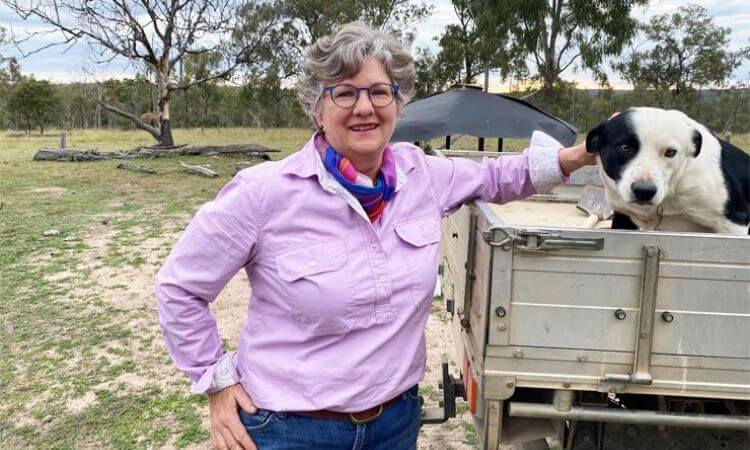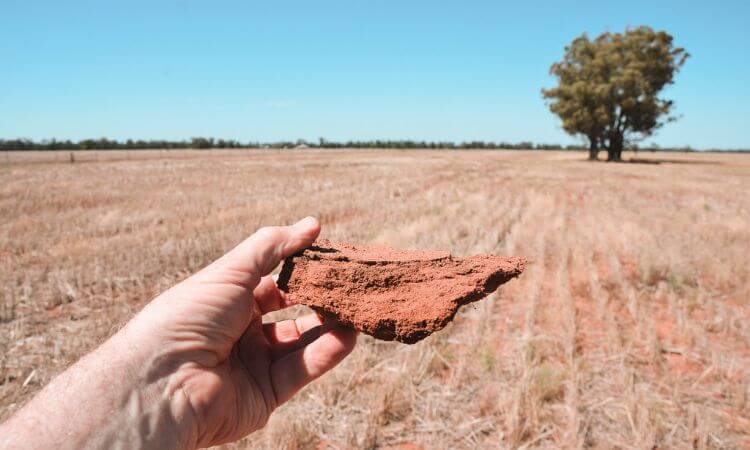As Queensland flood recovery continues, more than 60 per cent of the state remains drought-declared, making drought resilience planning as important as ever.
The next stage of planning is underway by the Rural Economies Centre of Excellence (RECoE), an economic research collaboration of four universities including the University of Southern Queensland, University of Queensland, James Cook University and Central Queensland University
RECoE Chair Professor John McVeigh, who is also Executive Director of University of Southern Queensland’s Institute for Resilient Regions, said the centre had made impressive progress in the Regional Drought Resilience Planning (RDRP) program as part of Australian Government’s Future Drought Fund.
“With so many communities impacted by recent flood events, it may seem like a difficult time to discuss drought,” Professor McVeigh said.
“We’re seeing people continue to engage in drought resilience planning, knowing that the reprieve is often short-lived.
“Enhancing resilience to the impacts of drought is fundamental for many of our regional and rural economies.”
RECoE was appointed by the Queensland Department of Agriculture and Fisheries to lead the state’s rollout of drought resilience planning in five pilot regions as part of the Commonwealth Government’s foundational year for the RDRP program.
The program was announced by Federal Minister for Agriculture and Northern Australia David Littleproud and Queensland Minister for Agricultural Industry Development and Minister for Rural Communities Mark Furner late last year.
“RDRPs will support local government groups to write regional drought resilience plans, ensuring greater regional coordination of responses and supporting local solutions,” Minister Furner said.
Minister Littleproud added that the plans would identify how to manage through droughts by finding ways to build resilience across agricultural sectors and allied industries.
“Planning will be community-led and owned. It will bring regional knowledge and perspectives, along with the best available evidence and data,” he said
Planning work is already underway in the five pilot regions of Fitzroy and Capricornia, Darling Downs plus South Burnett, Cape York and Torres Strait, Burdekin and Charters Towers and South West. The work is closely aligned with the disaster resilience planning work of the Queensland Reconstruction Authority and follows the implementation of Resilient Queensland.
Professor McVeigh said the RECoE alliance of researchers was well positioned to lead the regional planning program in Queensland, building on existing relationships and ongoing work in regional communities.
“Despite impacts from flood events and COVID-19 travel restrictions, the regional planning effort has started strong, with more than 150 different community stakeholder groups already engaged across the five pilot regions,” Professor McVeigh said.
“This planning process is an opportunity to develop truly region-specific plans and build local capacity in a variety of communities.”
In the Cape York and Torres Strait region, Torres Cape Indigenous Council Alliance (TCICA) Inc Executive Officer Melinda Eades has welcomed the opportunity to address the language of drought in an indigenous context and is taking a lead role in contributing to the Regional Drought Resilience Plan.
“While the Cape York and Torres Strait region is not typically associated with long term drought, a dry wet season very quickly leads to water shortages for communities and impacts grazing and agricultural sectors,” Ms Eades said.
“It can also lead to more frequent and severe bushfires.
“We know our climate is changing and it makes sense to take action now to build the social, economic, and environmental resilience of our communities to cope with these changes in the future.”
Draft plans in foundational year of the program are due for completion in mid-2022. The program is jointly funded through Australian Government’s Future Drought Fund and the Queensland Government.



